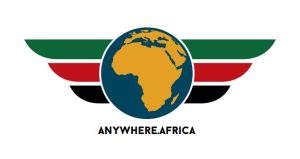Anywhere.Berlin – Rockin’ the Kasi (South Africa)
Who, What & Where
- Anywhere.Berlin
- Rockin’ the Kasi
- Sharpeville, Gauteng, South Africa
The Company
Anywhere.Berlin has three active locations in Africa: Kenya, Senegal and South Africa. The Sharpeville pilot near Johannesburg was the first and is the most mature. It was instigated to demonstrate the viability of using distributed manufacturing techniques to produce Light Electric Vehicles (LEVs) in emerging economies. These design imperatives required that the vehicles be robust and tailored to specific technologies to achieve replicability for mini and micro-factories. It also served as an introduction of front-loading electric cargo bikes to South Africa and LEVs in general.
The Challenge
Major challenges include supply chain hurdles (import of Li-ion batteries), uncovering full commercialisation trajectory and political intransigence, which were all addressed with patience and perseverance.
Renewable Solution
Robust electric cargo bikes with 160 kg payload capacity, averaging 30-35 km/charge and equipped with Li-ion NMC of 850 Wh each were introduced inside townships with an effort to provide clean mobility services to the marginalised rural communities. This project ensured engagement with all local stakeholders including at all levels of politics, from local forums to the Ministry of Transport, Gauteng Province. The project is grant funded by BMUV, Germany with support worth 220,000 EUR.
Project Financing and Costs
220,000 EUR
- Federal Ministry for the Environment, Nature Conservation, Nuclear Safety and Consumer Protection (BMUV) (grant provider)
- Deutsche Gesellschaft für Systeminnovation GmbH (GESI) (consultancy)
- SKDP – Sharpeville Kasi Development Projects (local implementing organisation)
- Anywhere.Berlin GmbH (project leader covering design, supply and management)
- Gauteng Department of Roads and Transport (counterpart political entity in joint agreement and cooperation with BMU and promoting project locally – situated in Johannesburg)
- Council of Science and Industrial Research (CSIR) (South Africa) (data framing, collection and analysis)
Project Outcome
Locally maintained and warranted, the bikes were used for many different logistics applications, e.g., 60,000 meals were delivered during the first year of the COVID-19 lockdown. Thereby, enabling socio-economic development for the community and avoiding environmental pollution.
Key Recommendations
- Excellent local team leadership
- Proper supply chain coordination
- Ensuring commercial uptake
- Availability of subsidies for market penetration

